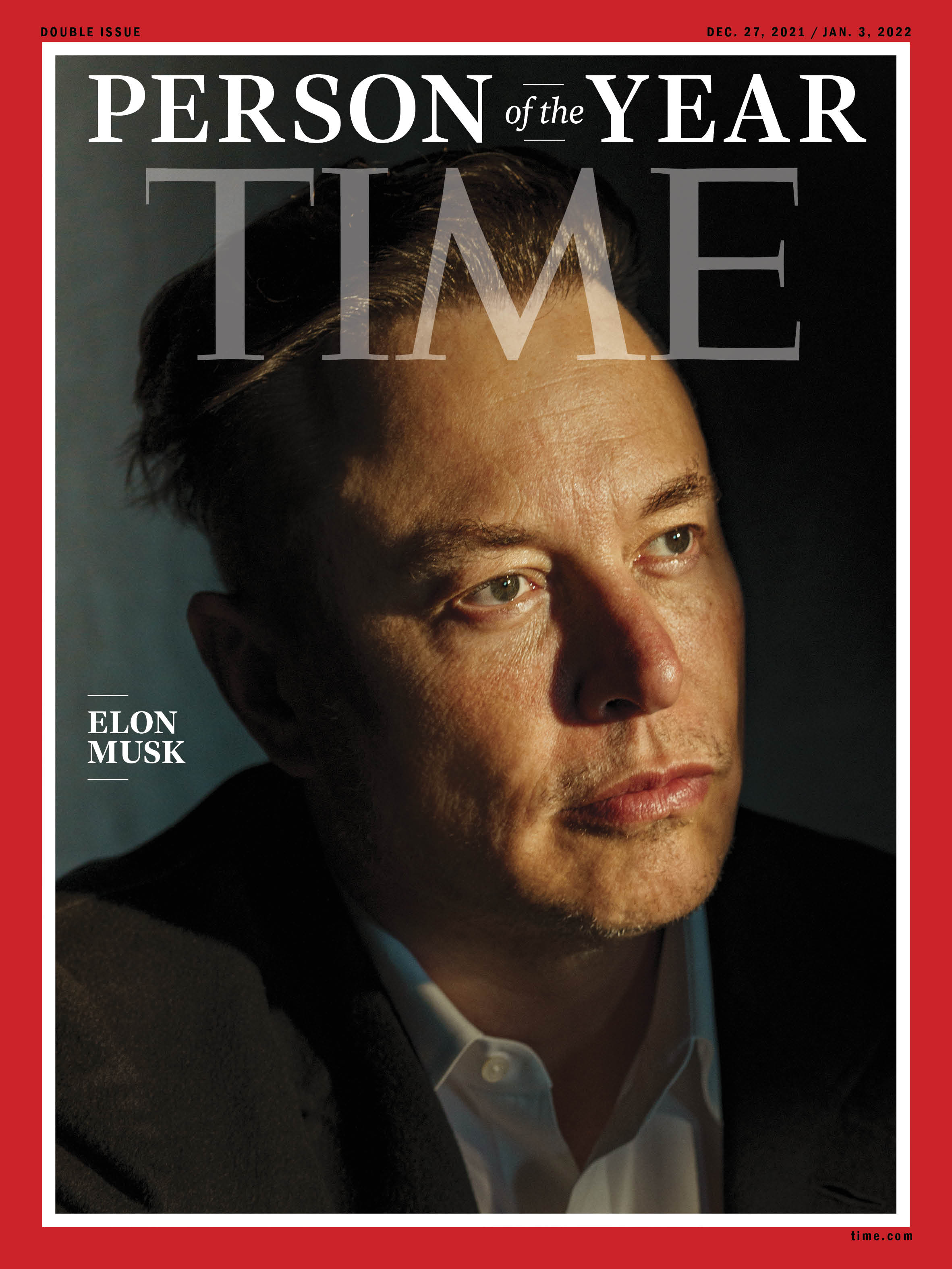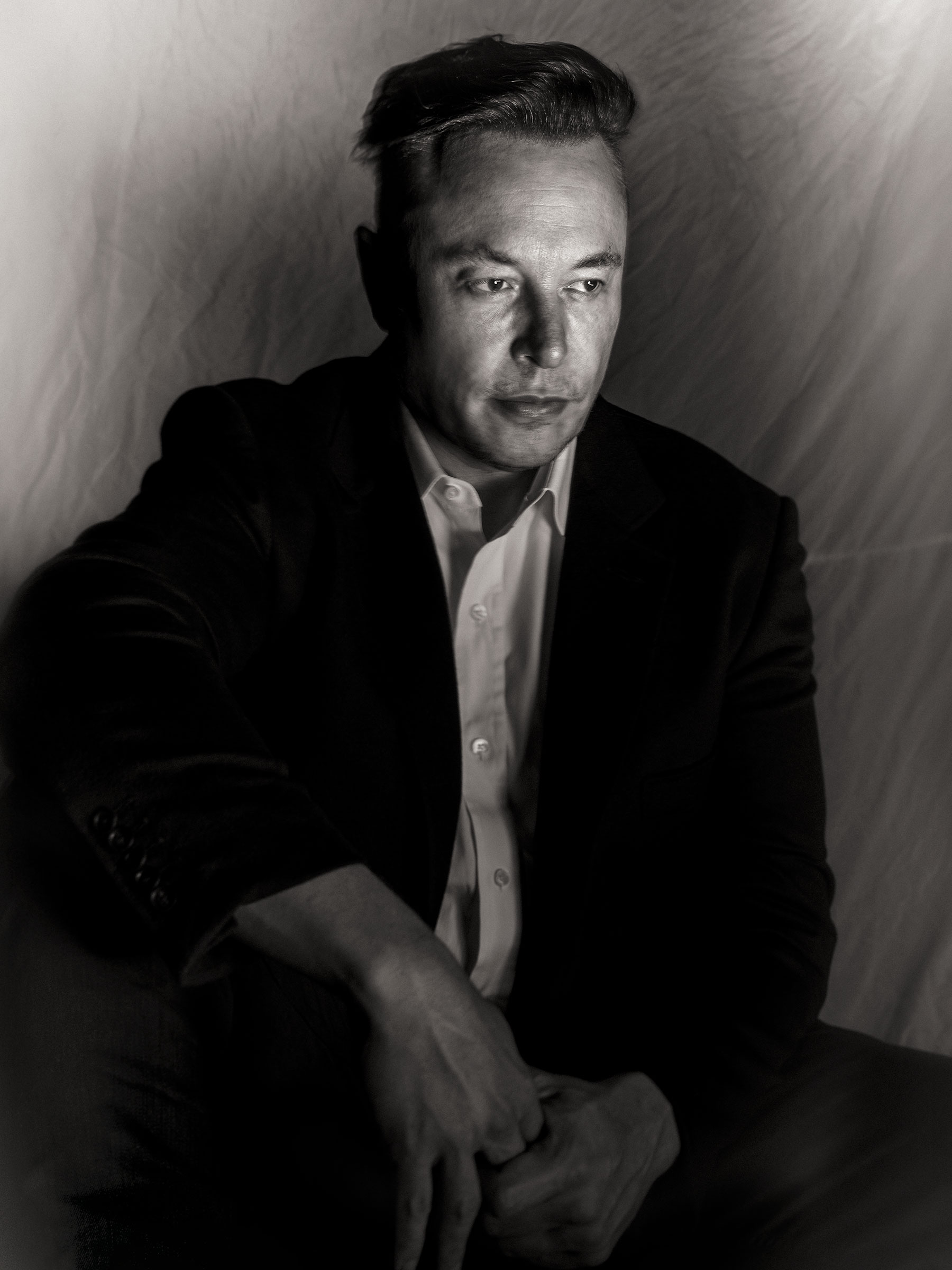Despite shattering records this year with a net worth above $300 billion, Elon Musk demurs at being described as the richest person in the history of the world. “Excluding sovereigns,” Musk says wryly, adding that Russia’s Vladimir Putin is likely richer than he. “I can’t invade countries and stuff.”
The differences begin to fade a bit as one drives down Texas Highway 4, between the Gulf of Mexico and the Rio Grande, toward one of the southernmost points in the U.S., where Musk is preparing to launch the world’s largest rocket. Gleaming spacecraft rise stories above the sparse terrain. His company is gobbling up local housing and encouraging employees to move there. “Creating the city of Starbase, Texas,” Musk announced on Twitter earlier this year, to the evident surprise of the residents of Boca Chica, where his facility is located. (A county official noted that “Sending a tweet does not make it so,” and that a petition must first be filed.)
For nearly a century, TIME has named a Person of the Year—the individual or group who most shaped the previous 12 months, for better or for worse. Person of the Year is a marker of influence, and few individuals have had more influence than Musk on life on Earth, and potentially life off Earth too. In 2021, Musk emerged not just as the world’s richest person but also as perhaps the richest example of a massive shift in our society. From Amazon’s Jeff Bezos to Facebook turned Meta’s Mark Zuckerberg, the year brought home the extent to which, at a time of rising protest over ever deepening inequality, our lives and many of the basic structures around them are now shaped by the pursuits, products and priorities of the world’s wealthiest people.

Even in that rarefied crowd, Musk is in a class of his own. He sees his mission as solving the globe’s most intractable challenges, along the way disrupting multiple industries across two decades. These include what was once the core American creation, combustion-engine automobiles, and what was once the core American aspiration, spaceflight, as well as a litany of other manifestations of our present and future: infrastructure construction, artificial intelligence, neurotechnology, payment systems and increasingly money itself through his dalliances with cryptocurrencies.
As provocative as his vision is his persona, a blunt instrument that often seems to revel in division and aggressive mockery as he gives the world access to his id through social media.
Musk’s largest terrestrial impact so far has been with Tesla. 2021 was the year that electric vehicles finally came into the mainstream and that Tesla became a trillion-dollar company, one of only a handful in the world. It’s a market that Musk almost single-handedly created, seeing long before others the demand for clean-energy transportation that the world’s climate crisis would eventually propel. From Detroit to Milan, announcements of EV commitments poured in all year as automakers that once fiercely resisted emissions restrictions are now scrambling to catch up.
Should we fall short with Earth, Musk’s answer is space, where he envisions “a futuristic Noah’s ark.” His SpaceX is the global commercial leader in building and flying rockets and crews, chosen by NASA to build the ship that aims to place astronauts back on the moon for the first time in more than 50 years. Musk’s rough timeline for that is three years, with two more years to land on Mars. The key, he says as matter-of-factly as the rest of us might say the time of day, is making spacefaring rockets as reusable as airplanes.
Musk’s rise coincides with broader trends of which he and his fellow technology magnates are part cause and part effect: the continuing decline of traditional institutions in favor of individuals; government dysfunction that has delivered more power and responsibility to business; and chasms of wealth and opportunity. In an earlier era, ambitions on the scale of interplanetary travel were the ultimate collective undertaking, around which Presidents rallied nations.
Today they are increasingly the province of private companies. To Musk, that is progress, steering capital allocation away from the government to those who will be good stewards of it. To others, it is testament to capitalism’s failings as staggeringly wealthy, mostly white men play by their own rules while much of society gets left behind.
In deciding each December who should be Person of the Year, we look back but also aim to look forward. Bezos was the choice in 1999 when e-commerce was just beginning to take off. Zuckerberg was selected in 2010, well before it was clear what Facebook’s full effect on society and democracy would be. We don’t yet know how fully Tesla, SpaceX and the ventures Musk has yet to think up will change our lives. At 50, he has plenty of time to write the future, his own and ours. Like it or not, we are now in Musk’s world.
For creating solutions to an existential crisis, for embodying the possibilities and the perils of the age of tech titans, for driving society’s most daring and disruptive transformations, Elon Musk is TIME’s 2021 Person of the Year.
